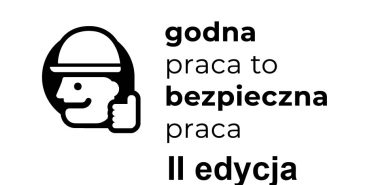What is the inspection and supervisory activity of a labor inspector?
The Act on the National Labor Inspectorate precisely defines the scope of duties and rights that the inspectors and inspectors have towards each other during the inspection.
The purpose of the inspection in the workplace is:
- establishing the facts with regard to compliance with labor law, in particular the provisions and principles of occupational health and safety;
- examining compliance with the provisions on legality of employment;
- documentation of findings made.
The control of the National Labor Inspectorate – in the field of occupational health and safety and the legality of employment – is subject to all employers and entrepreneurs who are not employers for whom work is provided by natural persons, including self-employed persons, regardless of the basis for the work.
The control may be performed at the seat of the controlled entity and in its subordinate units or places where financial and personnel documents are stored. Individual control activities may also be performed at the premises of PIP organizational units, ie the Chief Labor Inspectorate and District Labor Inspectorates.
The labor inspector has the right to:
- control of compliance with labor law, and in particular of the health and safety at work, without notice at any time of the day or night, and control of the legality of employment in the scope referred to in Art. 10 sec. 1 points 3 and 4 of the PIP Act.
- The labor inspector is not subject to the obligation to have a pass – he or she can move freely in the controlled area. He is also exempt from body searches, even if it is provided for in the work regulations in the inspected establishment.
In the course of performing control activities, the labor inspector has the right to:
- free access to the workplace and to all of its premises;
- inspection of facilities, machinery and equipment as well as work rooms;
- requests for written and oral information on matters under control – this obligation also applies to all employees or persons who perform or have performed work on a basis other than an employment relationship, including self-employed persons; the inspector also has the right to summon and question these people in connection with the inspection;
- access to the workplace documentation, including: documents relating to the construction, reconstruction or modernization and commissioning of the workplace; technical plans and drawings, technical and technological documentation; results of expert opinions, tests and measurements related to production or other activities of the plant – at the inspector’s request, you are obliged to provide the inspector with samples of raw materials and materials used, manufactured or produced in the course of production, in the amount necessary to conduct analyzes or tests, when they are related to the conducted control;
- access to personal files and any documents related to the performance of work by employees or persons employed on a basis other than the employment relationship;
- get acquainted with the decisions issued by other control and supervision bodies over working conditions and their implementation;
- recording the course of the inspection by means of technical means for recording image or sound;
- making copies, lists or excerpts from documents necessary for the purpose of control, as well as calculations and lists prepared on the basis of these documents;
- checking the identity of persons performing work or staying on the premises of the inspected entity, questioning them and requesting statements on the legality of employment or other gainful activity;
- use the help of experts and specialists as well as accredited laboratories.





